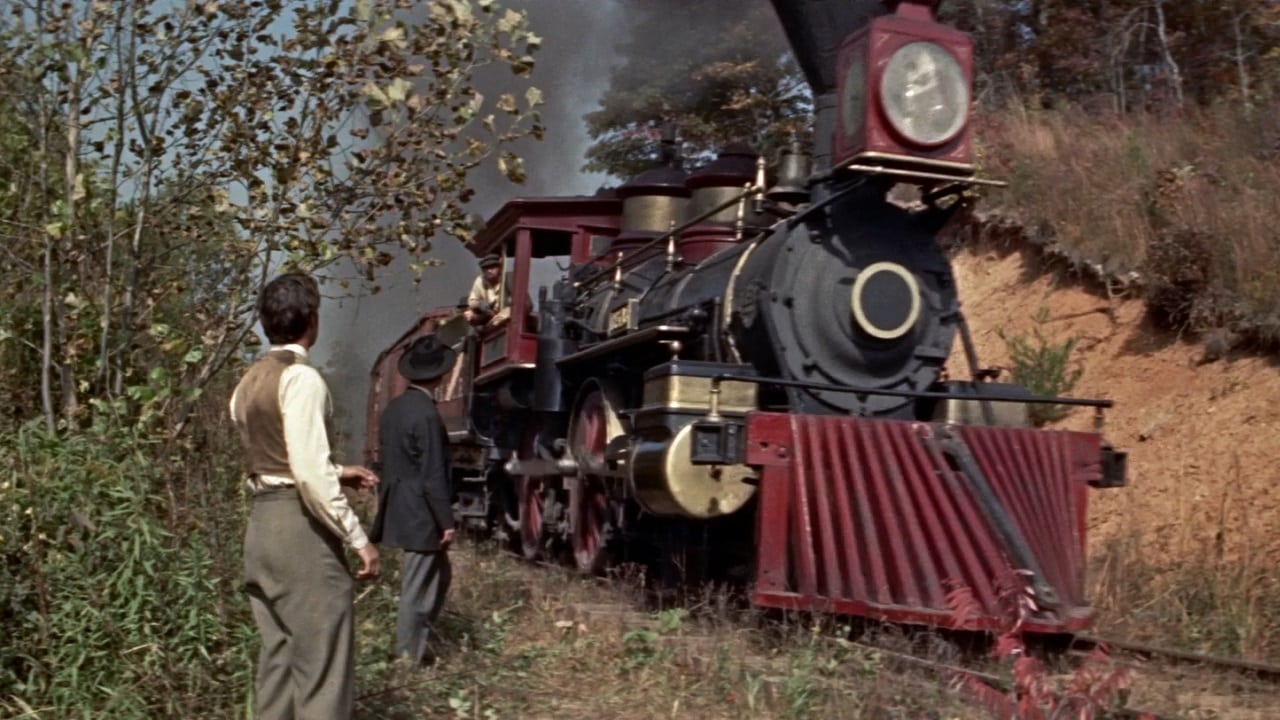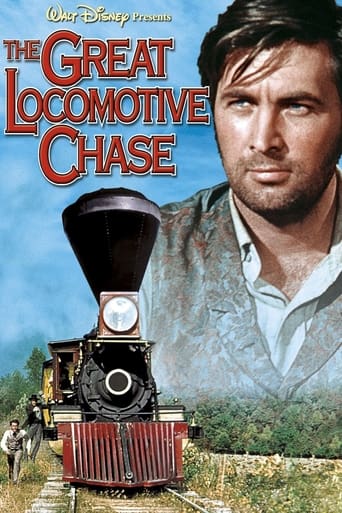

Just so...so bad
... View MoreThis is a tender, generous movie that likes its characters and presents them as real people, full of flaws and strengths.
... View MoreIt's an amazing and heartbreaking story.
... View MoreStory: It's very simple but honestly that is fine.
... View MoreThe movie was compelling overall. Some parts of it made me bored enough to pause and do something else for a bit, but when I was watching I was engaged. The writing successfully builds a form of tension that doesn't beg the question of "what's gonna happen in half an hour" but rather "what happens next". Not that either system is superior, of course, but I find that action films and history documentaries (of which this film is a hybrid) generally benefit more from the latter system. That said, the movie is certainly not perfect. Fess Parker's character, James J. Andrews, is introduced early on but in such a way that I genuinely asked myself why that interaction was even presented. There was nothing interesting about it, it doesn't help to describe the world the characters are in or the characters themselves, and there was not even the slightest hint that Andrews would be the protagonist. Parker's poor acting efforts at that particular moment didn't help at all, either. Thankfully, Parker's acting vastly improves in the next few minutes of run time, though it quickly takes a nosedive into "talking plank of wood" territory towards the conclusion of the film. Especially that last scene with Andrews and William A. Fuller, the antagonist - a disappointing bore at best. Still, all things considered, this is a well-made movie that manages to keep impressively accurate to history at least as well as I know it.
... View MoreExciting Disney adventure, filmed in CinemaScope, about an actual event that happened during the Civil War. It's the story of a group of Union soldiers, led by civilian spy James J. Andrews (Fess Parker), who go behind Confederate lines and steal a locomotive in Georgia. The men attempt to take the train back to Union lines in Tennessee but find themselves doggedly pursued by the train's conductor (Jeffrey Hunter). It's the same story that inspired Buster Keaton's classic silent comedy "The General." This one's no comedy and, while the chase itself is certainly the highlight of the film, it should be noted that this isn't just an action movie, either. There's some fine dramatic work here with good characterizations and a smart script. Parker and Hunter are both fantastic in their roles. The fine supporting cast includes Jeff York, Kenneth Tobey, Don Megowan, and John Lupton. It's a beautiful-looking film with excellent use of real locations and trains. History buffs and train enthusiasts should like it a lot. A real gem that I definitely recommend you give a chance.
... View MoreThe main trouble with this film, from my point of view, is that it's simply *the wrong way round*; whether the problem is inherent in the story or not I don't know, but while the film is based on the memoir of a Union soldier and clearly intends the Union raiders to be its protagonists, the way in which it is actually made means that you -- or at least I -- end up willing the other side on to win instead. Outnumbered, indomitable and prepared to chase down his train on foot, on a hand-car or on the footplate of a tiny, elderly shunting engine, Fuller is all but presented as the hero, and the temptation is to cheer for the arrival of the cavalry in the nick of time rather than to feel alarmed for the train-stealing spies. The fact that all the Southerners we meet in the course of the film are depicted as the best of fellows whom the narrator is ashamed to deceive, while the Northern soldiers spend most of it bickering amongst themselves, doesn't help either.This makes it a rather unusual beast: a film in which, as so often in Hollywood, I find myself cheering on the 'wrong' side, and yet one in which, to all intents and purposes, the 'wrong' side actually wins. The script does its best to present the Union failure as a moral victory, but it's not entirely convincing about it. I found the result to be a rather disconcerting balance.My other problem with the film was that basically, the train sequences are the main reason for the film's existence and as such occupy a large chunk of the running time; but they're not all of it, and the sections before and after are not exactly enthralling in comparison. If it's a history book, it's a Ladybird history: beautifully illustrated, but basically aimed at children's level, while the railway action is indeed exciting but has the effect of biasing the viewer the 'wrong' way.This sounds as if I thought it was a bad film, and on the whole I didn't. I don't think it's a particularly great one either, and either it or I (or both) are distinctly confused, but I'd recommend it as entertainment... especially to railway fans!
... View MoreAs I have mentioned previously there are a limited number of commercial films about the American Civil War. Most people will instantly say GONE WITH THE WIND, but much of that film deals with the ante - bellum South before war begins, and an hour and a half deals with Georgia under Reconstruction into the late 1870s. There is the twin films GODS AND GENERALS about the rise and fall of the magnificent military partnership of Robert E. Lee and Thomas Jonathan "Stonewall" Jackson, and GETTYSBURG. There is also THE HORSE SOLDIER about Grierson's Raid into Mississippi during the Vicksburg Campaign. There was the "Shiloh" segment of the HOW THE WEST WAS WON about the battle there. There was THE RAID about the attack of the Confederate Raiders from Canada on St. Albans, Vermont in the summer of 1864. Quantrell and his raiders appear in several films, most notably DARK COMMAND. There is also the prototype for GONE WITH THE WIND about the collapse of southern society called SO RED THE ROSE.It is notable that the emphasis is on raiders from the southern states or with southern sympathies (William Quantrell or Cantrell, or the St. Alban Raiders). But there are two films on one incident where the raiders were Northern raiders - the raid led by John J. Andrews in his celebrated February 1862 snatch of the locomotive "The General" in an attempt to damage southern railroad tracks and bridges in Georgia and Tennessee. The incident has ended up being the most discussed military operation of the land forces of the Civil War in film. First it was immortalized in what may have been the funniest war comedy ever made, Buster Keaton's THE GENERAL (1927). But Keaton, using the Andrews raid as a start, changed the story by having the Union raiders succeed for awhile in bringing the Confederate locomotive to Union lines and has his southern hero "Johnny Gray" steal it back. Unfortunately, Andrews and his raiders never had such luck. Indeed their fates were quite savage in reality.This 1956 film by Walt Disney is not as well known as Keaton's classic, but it come closer to being factually correct. It shows the planning of the scheme by Northern spy Andrews and his picked crew, how they stole the "General" in a surprise act when the train was getting refilled, and how they ran it for a twenty mile chase until the train reached the end of it's coal supply. Here the reality of the story gets more savage. Andrews and his men fled into the forests of Tennessee, and were tracked down by Southern troops who recaptured most of them. Andrews and several others were hung. The other captured raiders were sent to prison camps.For people who only think of Fess Parker as Walt Disney's "Davy Crockett" may be fascinated to see he played another role for that producer - and did a good job at it. And like the last episode of the series about the "King of the Wild Frontier", Parker's character died heroically, but violently again.
... View More